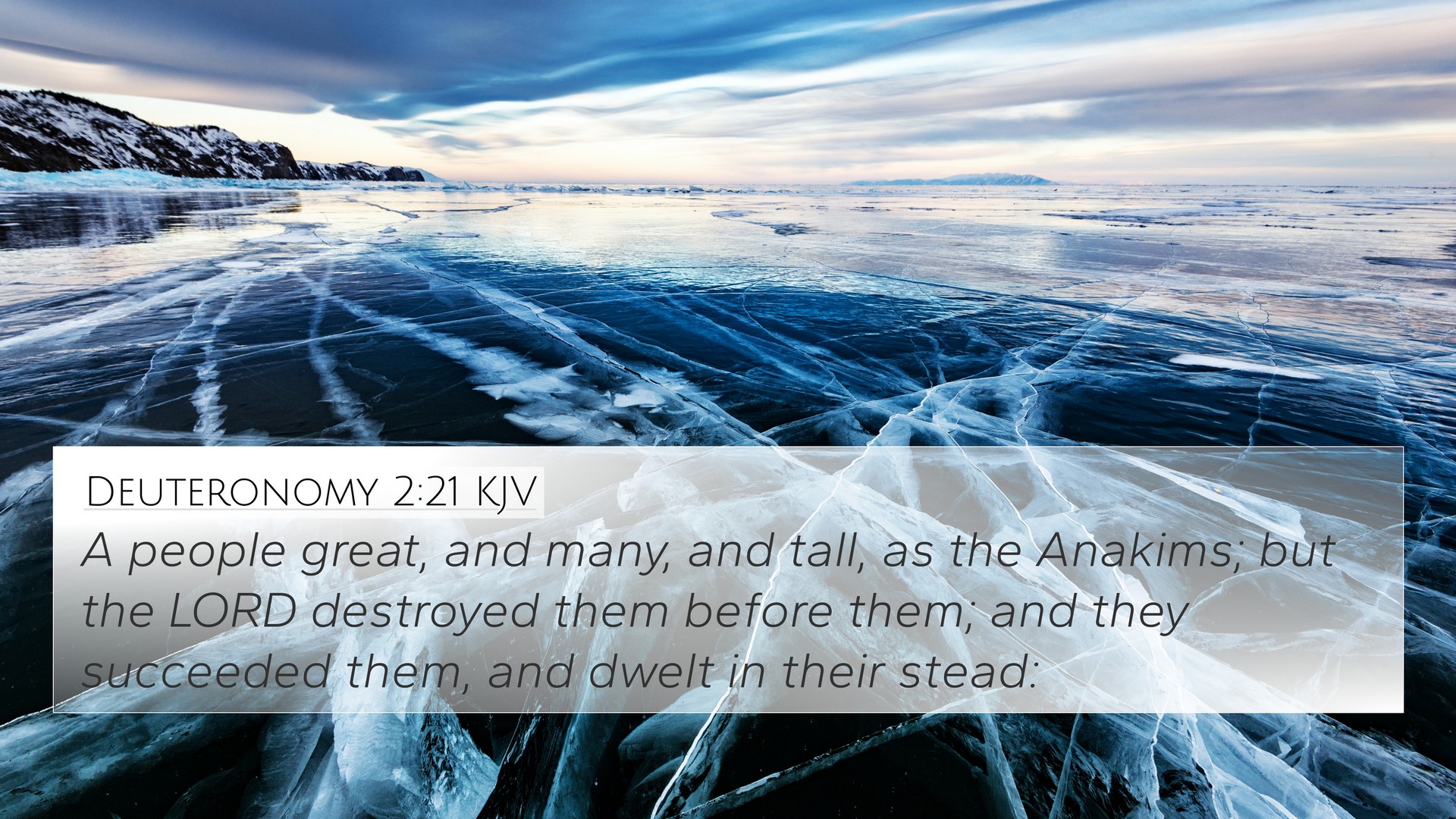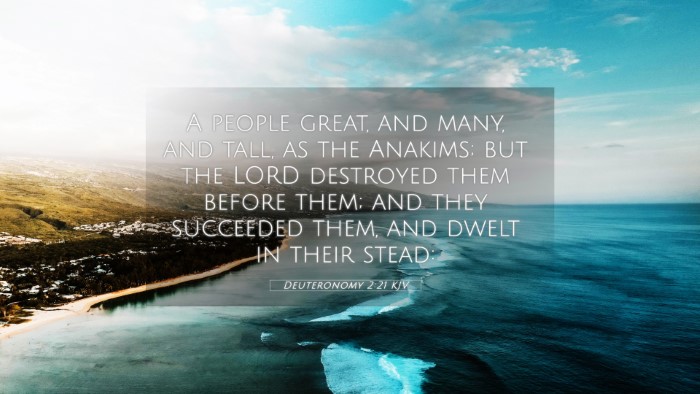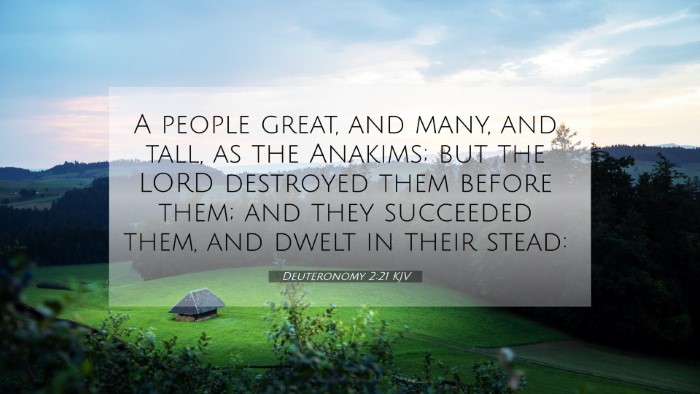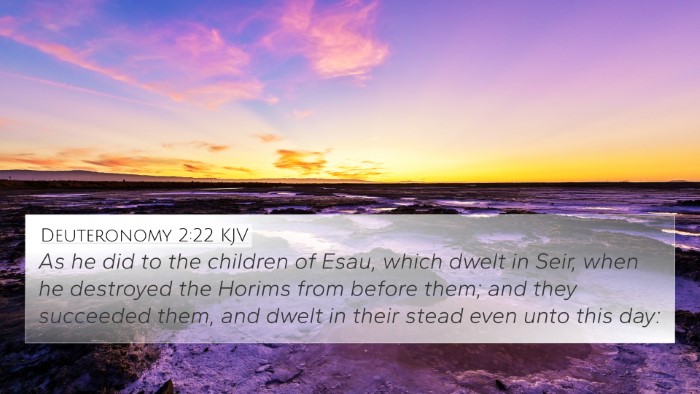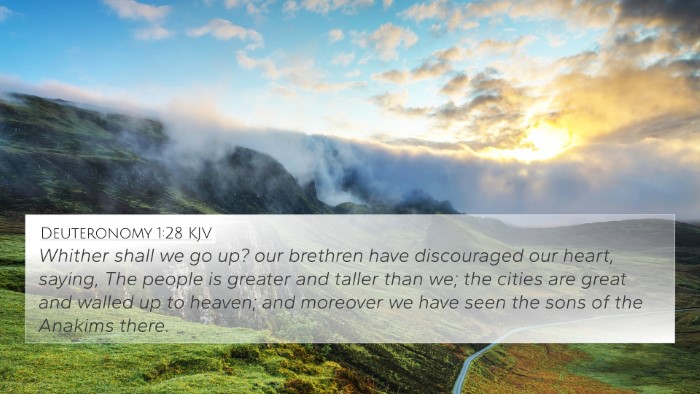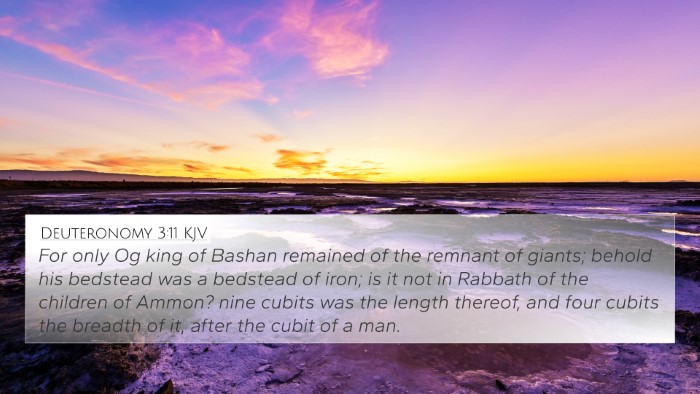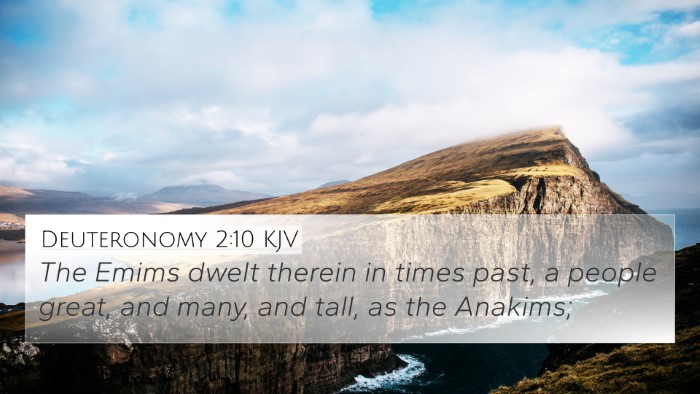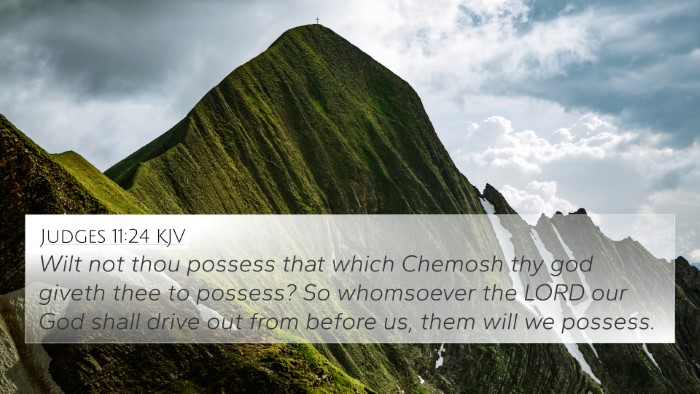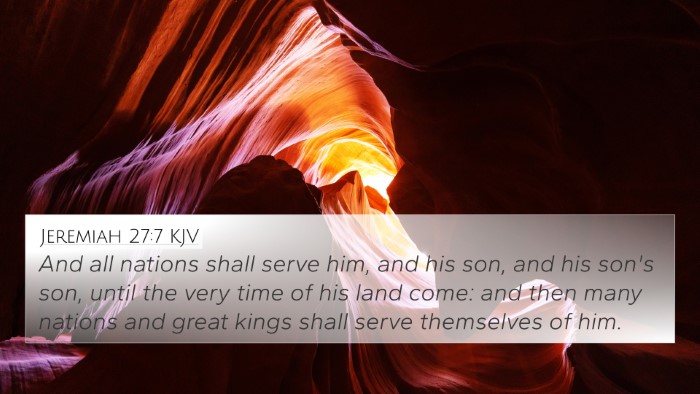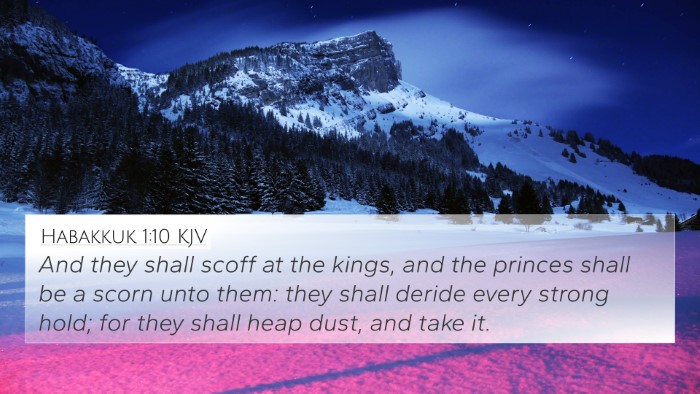Understanding Deuteronomy 2:21
Bible Verse: Deuteronomy 2:21
This verse refers to the strength and capability of a people whom God led to conquer formidable foes, affirming His providential guidance and support.
Verse Context
Deuteronomy 2 reflects the journey of the Israelites and the divine assurances they received as they navigated through various challenges. In this particular passage, the focus is on the victory over the Anakim, a race known for their tall stature and formidable reputation.
Summary of Commentaries
- Matthew Henry: Henry emphasizes God's intervention, detailing how the Israelites were led to overcome nations that seemed insurmountable, attributing their success to divine strength. He draws a comparison with spiritual victory, noting that just as God provided for Israel, He provides strength to believers today.
- Albert Barnes: Barnes analyzes the characteristics of the Anakim and connects them to the broader theme of God’s protection. He reflects on the covenant God made with Israel and His commitment to ensure their success against their adversaries.
- Adam Clarke: Clarke notes the importance of remembering God’s faithfulness in past victories and encourages believers to trust in His provision during current struggles. He provides a message of hope and empowerment through faith in God’s plans.
Thematic Connections
Deuteronomy 2:21 connects to several important biblical themes:
- Divine Strength: The idea that God empowers His people to face giants (literally and metaphorically) can be observed in 1 Samuel 17 with David and Goliath.
- Faithful Leadership: As seen in Joshua 1:9, God commands His leaders to be strong and courageous, paralleling the strength given to Israel in Deuteronomy.
- Overcoming Adversity: This theme resonates with Romans 8:37, which states that through Christ, believers are more than conquerors.
Bible Cross-References
For deeper understanding and analysis, consider these Bible cross-references:
- Numbers 13:33: The description of the giants encountered by the Israelite scouts, providing context to the fear and challenge.
- Joshua 11:21-22: Joshua’s campaign against the Anakim, showing God’s promises fulfilled.
- Isaiah 54:17: Assurance that no weapon formed against God's people will prosper.
- Psalm 18:29: The assurance of strength through God, who enables His people to overcome their enemies.
- Hebrews 11:30-31: Faith of Israel exemplified in their conquest and the victory by faith over Jericho.
- 2 Corinthians 10:4: The spiritual battle believers face and the divine weapons available for victory.
- Romans 15:4: The importance of scripture for endurance and encouragement, illuminating the relevance of historical experiences.
Importance of Cross-Referencing
Understanding Deuteronomy 2:21 through cross-referencing allows for a richer comprehension of biblical texts. Using tools for Bible cross-referencing enhances study and reveals overarching themes and connections:
- Engage in comparative Bible verse analysis to uncover links between Old and New Testament teachings.
- Utilize a Bible concordance to explore terms related to God's provision and victory.
- Implementing a Bible cross-reference guide can streamline your study and uncover insightful parallels.
Conclusion
Deuteronomy 2:21 serves as a powerful reminder of God’s ability to empower and provide to His people in the face of daunting challenges. By examining this verse through public domain commentaries and cross-referencing it with related scriptures, one can glean invaluable insights into divine faithfulness and strength, encouraging a deeper appreciation for the interconnectedness of biblical narratives.
